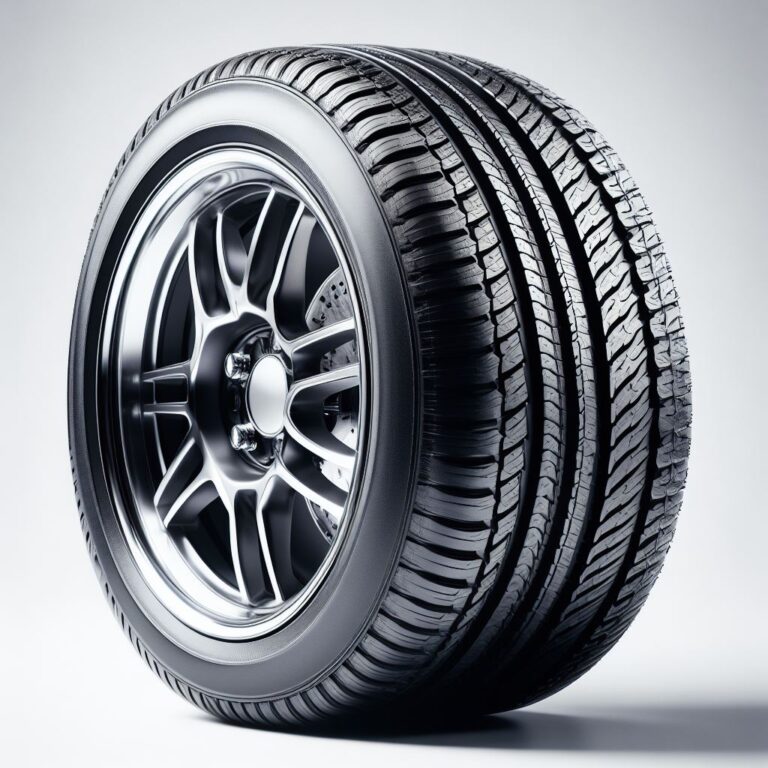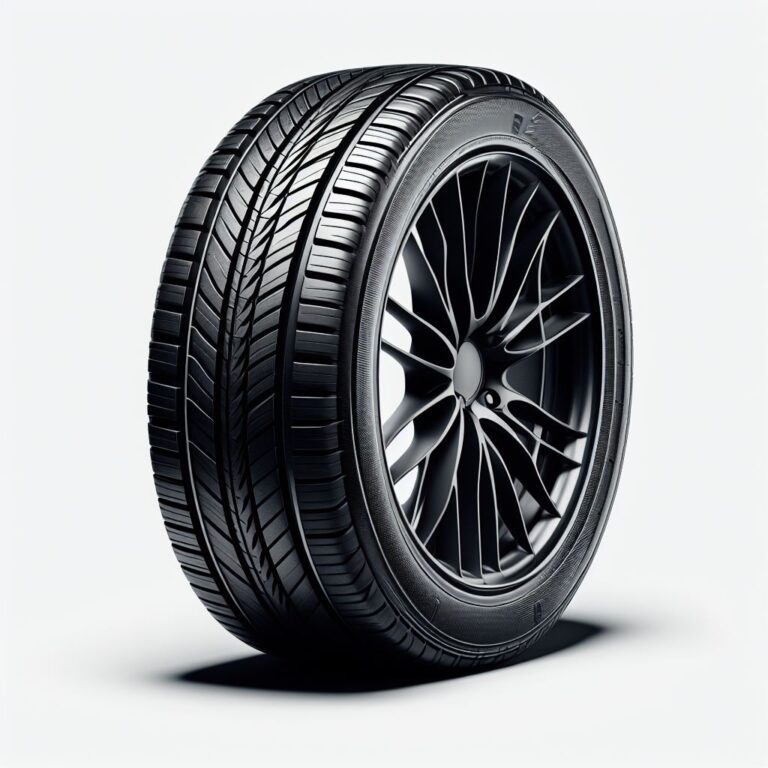How To Choose Cooper Weather-Master WSC
- How To Choose Arctic Claw WXI - January 20, 2024
- How To Choose BFGoodrich Advantage Control All Season - January 20, 2024
- How To Choose BFGoodrich Winter T/A KSI - January 20, 2024

Tire Size: Understanding the appropriate tire size for your vehicle.
When it comes to selecting the right tires for your vehicle, understanding the appropriate tire size is crucial. The tire size is typically indicated by a series of letters and numbers, such as P215/55R17. The first letter, “P,” represents the tire type, in this case, a passenger car tire. The following three numbers, “215,” denote the tire’s width in millimeters. The next two numbers, “55,” represent the aspect ratio or the tire’s height as a percentage of its width. Lastly, the “R” signifies the tire’s construction type, indicating radial construction, while the final number, “17,” denotes the diameter of the wheel that the tire can fit. It is essential to consult your vehicle’s owner’s manual or tire placard to determine the appropriate tire size for optimal performance and safety.
Using the wrong tire size can lead to several problems, including reduced handling capabilities, excessive tire wear, and potential damage to the vehicle’s suspension components. For instance, using a tire size that is too wide or too narrow for your vehicle can negatively affect the overall balance and stability, impacting the vehicle’s handling and ride comfort. Similarly, using a tire size with an incorrect aspect ratio can alter the tire’s sidewall height, affecting the vehicle’s suspension geometry and potentially damaging suspension components. Therefore, it is critical to select the appropriate tire size based on your vehicle’s specifications to ensure optimal performance and safety on the road.
Tread Pattern: Evaluating the different tread patterns and their benefits.
When it comes to tread patterns, there are various options available in the market. Each tread pattern is designed to cater to specific driving conditions and preferences. One common type is the symmetrical tread pattern, which features continuous grooves across the entire tire surface. This design ensures even tread wear and provides excellent traction on dry and wet roads. Another popular choice is the directional tread pattern, characterized by V-shaped grooves that are angled towards the center of the tire. This pattern effectively disperses water and slush, reducing hydroplaning and enhancing wet traction. Additionally, the directional tread design also offers improved stability and responsive handling.
For those who frequently encounter snowy and icy conditions, the studless winter tire tread pattern is highly recommended. This pattern consists of deep, wide grooves and numerous tiny, irregularly spaced sipes for better grip on slippery surfaces. The large voids allow snow to be packed into them, effectively enhancing traction. On the other hand, all-terrain tread patterns are suitable for drivers who require versatility and off-road capabilities. These patterns typically feature more robust and aggressive tread blocks, providing excellent traction on various terrains.
Winter Performance: Assessing the tire’s performance in snowy and icy conditions.
When it comes to winter driving, one of the most important factors to consider is the performance of your tires in snowy and icy conditions. The right tire can make all the difference in your ability to safely navigate slippery roads and maintain control of your vehicle. The Cooper Weather-Master WSC tires are specifically designed to excel in winter conditions, providing exceptional traction and grip on snow and ice. With their special tread compound and innovative tread pattern, these tires offer enhanced braking capabilities and improved handling, ensuring a smooth and secure driving experience even in the harshest winter weather.
The Cooper Weather-Master WSC tires feature a high number of biting edges and sipes, which help to effectively bite into snow and ice, providing optimal traction and grip. This allows for improved acceleration and confident cornering, giving you peace of mind while driving in winter conditions. In addition, the wide lateral grooves of these tires quickly evacuate slush and water, reducing the risk of hydroplaning and enhancing wet traction. With their superior winter performance, the Cooper Weather-Master WSC tires are a reliable choice for anyone seeking a safe and enjoyable driving experience during the winter months.
Wet Traction: Determining the tire’s ability to grip wet surfaces.
When it comes to evaluating a tire’s wet traction, it is crucial to consider the tire’s ability to grip wet surfaces effectively. This characteristic is particularly important because wet road conditions can significantly impact a vehicle’s handling and braking abilities. A tire with good wet traction will disperse water efficiently, allowing for enhanced grip and control on wet surfaces. This feature is especially important to ensure the safety of the driver and passengers, as it reduces the risk of skidding or hydroplaning in wet weather conditions. Therefore, selecting a tire with excellent wet traction is essential for maintaining stability and confidence while driving in wet conditions.
To determine a tire’s wet traction, various aspects should be assessed. One of the key factors to consider is the tread pattern. Tires with deep and wide grooves are designed to channel water away from the tire’s contact patch, helping to maintain better traction on wet roads. Additionally, the tire’s compound plays a crucial role in its wet traction performance. A softer compound with a high silica content is often chosen for its ability to provide better grip on wet surfaces. By evaluating these aspects, drivers can make an informed decision to select a tire that offers optimal wet traction, ensuring safer and more confident driving experiences in wet weather conditions.
Dry Handling: Evaluating the tire’s responsiveness on dry roads.
When it comes to evaluating the tire’s responsiveness on dry roads, one of the key factors to consider is the tread compound. A tire with a softer compound provides better grip and traction, allowing for quicker acceleration and shorter braking distances. On the other hand, tires with a harder compound tend to have less grip but offer better fuel efficiency and longer tread life. It is important to strike a balance between grip and durability to ensure optimal performance on dry surfaces.
In addition to the tread compound, the tire’s tread pattern plays a significant role in dry handling as well. Tires with a more aggressive tread pattern, such as those with larger and wider grooves, are designed to channel away water and provide better grip in wet conditions. However, on dry roads, these aggressive patterns may cause excess noise and result in reduced traction. On the contrary, tires with a shallower and more symmetrical tread pattern tend to offer improved dry handling by providing a larger contact patch with the road surface, resulting in enhanced stability and precise cornering.
Noise Level: Considering the noise produced by the tires while driving.
Whether you’re embarking on a road trip or commuting to work, the noise level of your tires can significantly affect your driving experience. Tire noise can range from barely noticeable to quite loud, and it’s important to consider this factor when choosing the right tires for your vehicle. The noise produced by tires while driving is influenced by various factors, such as tread pattern, road surface, and the type of tire construction.
Tread pattern plays a crucial role in determining the noise level of tires. Tires with aggressive tread patterns, such as those designed for off-road or all-terrain use, tend to produce more noise compared to tires with a smoother, highway-oriented tread design. This is because the large, deep grooves and prominent lugs on off-road tires create more air turbulence as they come into contact with the road surface, resulting in increased noise. On the other hand, tires with a more refined tread pattern, such as those optimized for highway driving, are engineered to minimize noise by reducing air turbulence.
Durability: Assessing the tire’s longevity and resistance to wear.
Durability is a crucial factor to consider when choosing tires for your vehicle. It refers to the tire’s ability to withstand wear and tear over an extended period. A tire with good durability will have a longer lifespan, providing you with more mileage before needing a replacement.
To assess the durability of a tire, it is essential to look at several aspects. The tire’s construction materials, tread compound, and overall design play vital roles in determining its longevity. High-quality tires often incorporate advanced technologies and innovative materials that enhance their resistance to wear. Additionally, tread depth and pattern can also affect a tire’s durability. Tires with deeper treads tend to last longer as they provide better traction and grip, while patterns designed for even wear can help maximize the tire’s lifespan. When evaluating a tire’s durability, it is important to consider your driving habits, the road conditions you commonly encounter, and your vehicle’s weight and load requirements. By selecting a durable tire, you can ensure a safe and reliable driving experience while minimizing the frequency of tire replacements.
Price: Evaluating the cost of the Cooper Weather-Master WSC tires.
When it comes to purchasing new tires, price is undeniably an important factor to consider. The Cooper Weather-Master WSC tires are known for their exceptional performance in winter conditions, but how do they fare in terms of cost? Well, it is worth noting that the price of these tires can vary depending on the size and the retailer. On average, the Weather-Master WSC tires tend to be priced competitively compared to similar winter tires on the market. While they may not be the cheapest option available, their performance and durability make them a worthwhile investment for drivers who frequently encounter snowy and icy roads.
However, it is important to keep in mind that the cost of the Cooper Weather-Master WSC tires should not be the sole determining factor in your decision-making process. Other aspects, such as tire size, tread pattern, and performance in different weather conditions, should also be taken into consideration. It is often recommended to do thorough research and compare prices from different retailers to ensure that you are getting the best value for your money. Additionally, it is advisable to consult tire experts or mechanics who can provide professional advice on which tire options would suit your specific vehicle and driving needs.
Customer Reviews: Considering feedback and experiences from other consumers.
Customer reviews are a valuable source of information when making purchasing decisions, including when it comes to selecting the right tires for your vehicle. By considering feedback and experiences from other consumers, you can gain insights into the performance and reliability of a particular tire model. Reading customer reviews provides an opportunity to understand if the tire meets your specific needs and expectations, whether it’s for everyday driving, long trips, or off-road adventures.
When evaluating customer reviews, it is important to consider the overall consensus of the feedback rather than focusing on individual opinions. Look for common themes and trends that emerge from multiple reviews to get a more accurate assessment of the tire’s performance. Keep in mind that everyone’s driving habits and preferences differ, so it’s essential to take a balanced approach when considering customer feedback. Additionally, professional advice from tire experts or mechanics can complement customer reviews and provide a well-rounded perspective on the tire’s suitability for your vehicle.
Professional Advice: Seeking guidance from tire experts or mechanics.
Tire experts or mechanics can provide essential advice when it comes to selecting the right tires for your vehicle. Their extensive knowledge and experience allow them to guide you in understanding the specific tire size that is suitable for your vehicle. By analyzing factors such as your vehicle’s make and model, driving habits, and the conditions you frequently encounter, these professionals can recommend the ideal tire size that will ensure optimal performance and safety on the road. Seeking their expert advice will help you make an informed decision and avoid the potential risks and inconveniences of installing the wrong tire size.
In addition to assisting with tire size selection, tire experts or mechanics can also provide valuable insights regarding other important factors such as tread pattern. They can help you evaluate the various tread patterns available and explain the benefits and advantages of each. Whether you need tires with an aggressive tread pattern for off-road adventures or those with a specialized design for enhanced performance on wet surfaces, these professionals can offer recommendations based on your specific requirements and preferences. Their assistance can make a significant difference in ensuring that your tires deliver the desired performance and meet your expectations in various road conditions.
Why should I seek guidance from tire experts or mechanics?
Tire experts or mechanics have the knowledge and experience to provide professional advice on choosing the right tires for your vehicle based on your specific needs and driving conditions. They can help you make informed decisions and ensure your safety on the road.
How can tire experts or mechanics help me understand the appropriate tire size for my vehicle?
Tire experts or mechanics can assess your vehicle’s specifications and recommend the correct tire size that will fit properly and perform optimally for your vehicle.
What should I consider when evaluating different tread patterns?
Tire experts or mechanics can explain the benefits of different tread patterns, such as improved traction on different road surfaces, enhanced handling, and reduced road noise. They can guide you in selecting a tread pattern that suits your driving needs.
How can tire experts or mechanics help me assess a tire’s performance in snowy and icy conditions?
Tire experts or mechanics can provide insights on the winter performance of different tires, including their grip on snowy or icy surfaces, braking effectiveness, and overall stability. They can recommend tires specifically designed for winter conditions.
Can tire experts or mechanics help me determine a tire’s ability to grip wet surfaces?
Yes, tire experts or mechanics can explain the features that contribute to a tire’s wet traction, such as tread design and compound. They can recommend tires with superior wet traction, reducing the risk of hydroplaning and improving overall safety in wet conditions.
How can tire experts or mechanics help me evaluate a tire’s responsiveness on dry roads?
Tire experts or mechanics can provide insights on a tire’s dry handling characteristics, including its grip, cornering ability, and stability. They can recommend tires that offer optimal performance in dry conditions, enhancing your driving experience.
Can tire experts or mechanics guide me in considering the noise produced by tires while driving?
Yes, tire experts or mechanics can help you evaluate the noise level of different tires by considering factors like tread design and noise-reducing technology. They can recommend tires that provide a quiet and comfortable ride.
How can tire experts or mechanics assess a tire’s durability and resistance to wear?
Tire experts or mechanics can offer their expertise on a tire’s construction, materials, and tread life. They can guide you in selecting tires that are known for durability and long-lasting performance, ultimately saving you money in the long run.
Is it important to consider the price of tires?
Yes, tire experts or mechanics can help you evaluate the cost of tires and determine the best value for your budget. They can explain the relationship between tire price and quality, ensuring you get tires that meet your needs without overspending.
How can customer reviews be helpful in making a decision?
Customer reviews provide valuable insights into real-world experiences with specific tires. Tire experts or mechanics can help you analyze and understand customer feedback, giving you a better understanding of the pros and cons of different tire options.
Can tire experts or mechanics provide additional professional advice on tire selection and maintenance?
Absolutely! Tire experts or mechanics have extensive knowledge on various tire brands, models, and maintenance practices. They can offer personalized recommendations based on your driving habits, specific vehicle requirements, and budget constraints.







